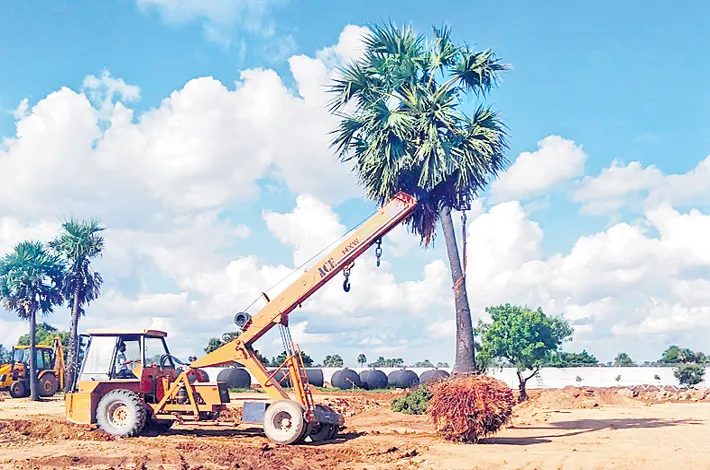Amaravati now home to India’s largest translocate tree nursery
18-08-2025 12:00:00 AM

Amaravati has earned a unique distinction in India’s green history hosting the country’s largest translocate tree nursery. Spread across five acres, the nursery currently shelters more than 4,000 trees that were carefully moved from road construction sites across Andhra Pradesh.
What makes the initiative remarkable is not just the scale but the scientific precision with which the trees were relocated. According to officials, specially trained teams used modern translocation techniques to uproot, transport, and replant mature trees some decades old without damaging their root systems.
“Tree translocation is not just about saving greenery; it is about preserving living heritage,” said T Ramesh, an official from the Forest Department. “Our survival rate stands between 85 to 95 percent, which is a huge success compared to global standards.”
The project was initiated to ensure that developmental works, particularly new roadways, do not come at the cost of green cover. Instead of felling trees, the government adopted the more sustainable practice of translocation. The five-acre nursery in Amaravati now serves as a holding zone where the trees are nurtured until they can be replanted permanently.
The plan is to replant the trees along new roads, urban parks, and public spaces by December this year. “By reintroducing these trees into the city’s landscape, we are creating an urban forest that future generations will thank us for,” said V. Hanumant ha Rao, a senior horticulture officer overseeing the nursery.
Experts believe that the Amaravati nursery sets a benchmark for other states. “Very few places in the world attempt tree translocation at this scale. This initiative proves that infrastructure growth and environmental conservation can go hand in hand if planned carefully,” said Lakshmi, Margam Foundation.
With the success of the Amaravati model, officials are considering setting up similar nurseries in other parts of Andhra Pradesh. For now, the five-acre facility stands as a symbol of how modern science and ecological responsibility can converge to create sustainable urban development.








